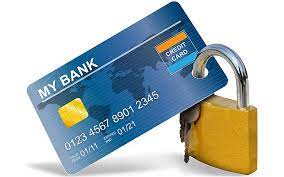It’s estimated that around 70% of Americans have at least one credit card and that about a third have two cards or more. And yet, so many people don’t know much about their credit cards past their credit limit, reward schemes, and interest rate.
Not understanding how credit cards work and how different issuers conduct business is a big mistake that could lead to disastrous surprises later on. This is why you should learn as much as you can about credit cards and credit in general before you even apply for a card. Here are some of the things a lot of people don’t know about credit cards.
Not All Issuers Calculate Minimum Payments the Same
One thing you may not realize is that minimum payments on credit cards are not calculated the same by all companies. This is why you have to know which method your specific issuer uses before you get a card. This will allow you to calculate what your minimum payments will be in advance and plan your finances accordingly.
If you’d like to learn more about minimum payments and calculate payments for a future card, you should check out this credit card minimum payment calculator from Tally. Not only will this credit card minimum payment calculator allow you to quickly get an assessment of how much you can expect to pay, but Tally’s blog also explains the different methods credit card companies use to tell how much your minimum payment should be. It also explains the importance of minimum payments and where you can find out the method your credit card issuer uses.
Interest Rates Could Change at any Time
Just because you have a fixed rate today, doesn’t mean that it will always stay that way. Most credit cards are issued by federally chartered banks, and these banks don’t have to obey state regulations that put a cap on interest rates. So, at any time, your issuer may decide to increase your interest rate.
One thing you should know, however, is that nothing is forcing you to accept an interest rate hike. The CARD Act protects consumers from unwanted rate hikes by forcing issuers to give you a 45-day notice before they increase the rate and allow you to refuse it. The rate increase should only apply to charges made after the change too.
Your Credit Card Could Back Some of Your Purchases
Did you know that credit cards will allow you to get a refund on a purchase if you’re not satisfied with it? Under the Fair Credit Billing Act, you are eligible for a refund if the purchase is over $50, and the retailer is within 100 miles of your residence. You also have to show that you’ve taken the steps necessary to resolve the issue with the seller.
On top of that, some credit card issuers will offer extended warranties, protection against broken or lost merchandise, and return protection, among other things. So, check the fine print and see what kind of protection you will get from your credit card issuer before you sign up.
Your Card May Not Be Accepted Abroad
You may assume that your Discovery or American Express card will be accepted everywhere, but don’t make that assumption. While MasterCard and Visa cards are pretty much recognized by all retailers no matter the location, this may not be the case with cards that are more popular in the US.
Don’t assume this is limited to obscure countries or countries with a lesser developed economy either. Discover is largely unknown in Canada, for instance, and many retailers can’t even process their cards. The same goes for many places in Europe and Asia. So, do your research before you pick a particular card if you like to travel a lot.
Having Lots of Credit Cards Can be a Good Thing
One of the worst mistakes people make is to automatically cancel cards that they’re not using. Little do they know that they could be hurting their credit by doing so.
You see, the more unused credit you have, the higher your credit score will be. So, if you can, you should try to refrain from using your extra cards or keep the balance on them as low as possible instead of canceling them.
Some people will go as far as freezing their card into ice or destroying it while keeping their accounts open so they can get the credit-boosting benefits. Choose whatever option works for you and always remember to keep an eye on your statements so you can stay on top of fees. And only follow this advice if you’re 100% sure that you’ll be able to keep your spending under control.
Understanding how credit cards work is extremely important if you don’t want to get taken advantage of by predatory credit card issuers. It will also help you maximize their use and find ways to benefit from them.













